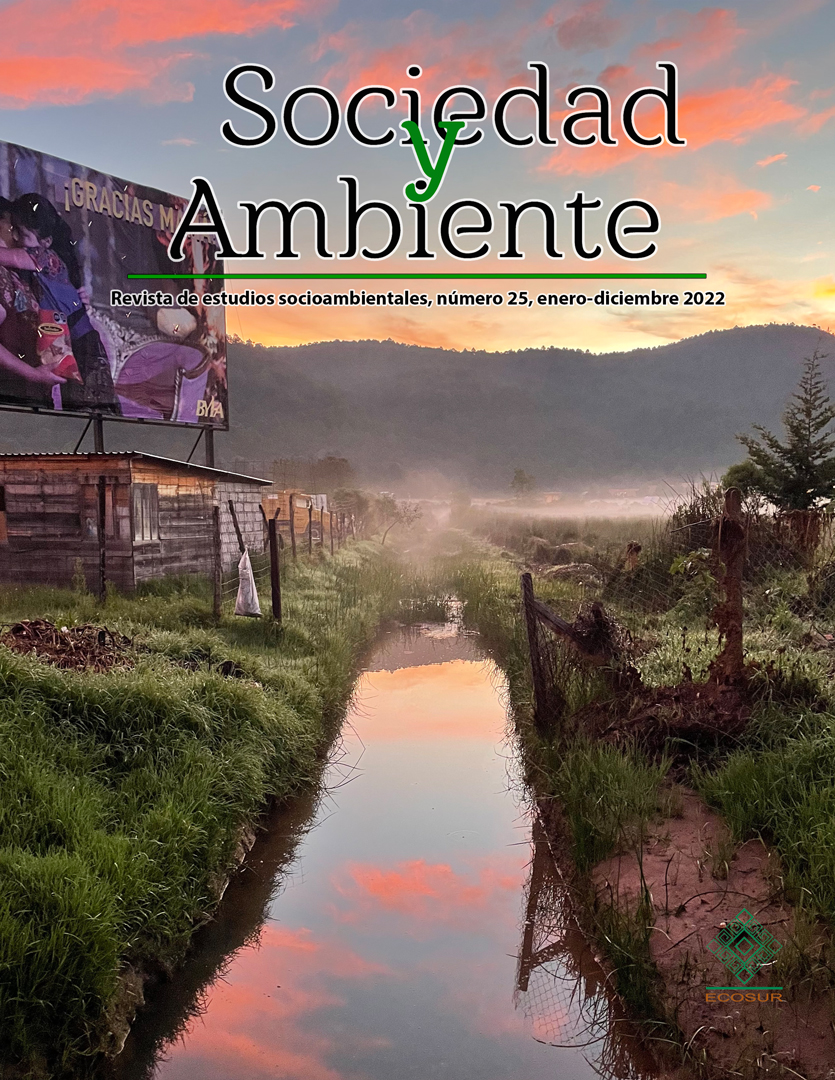Abstract
This article aims to examine the socioeconomic factors that influenced the inhabitants of a protected natural area in Chiapas, Mexico, to adopt reforestation practices within the framework of an inter-institutional project that promoted the restoration of their forest estates affected by hurricane Barbara in 2013. We carried out a qualitative and statistical analysis through a Logit model with the information collected in the fieldwork between 2014 and 2015, obtained through direct observation and data from 51 surveys. The results show that people’s willingness to reforest decreases as cattle ranching represents their primary occupation. In addition, the population that most likely reforest is the one that has the greatest participation in forestry activities, is motivated by intrinsic factors, and resides permanently in the place. We conclude that the socioeconomic aspects of local productive activities affect the decision to reforest.

Sociedad y Ambiente by ECOSUR is licensed under a Creative Commons Reconocimiento-NoComercial-SinObraDerivada 2.5 México License


